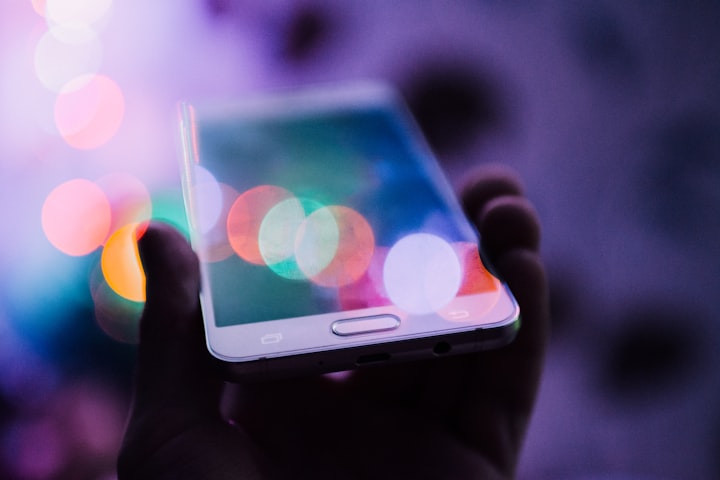
Mobile refers to anything that is designed to be used or operated while in motion or on the go. In modern times, mobile often refers to mobile devices such as smartphones, tablets, and wearable technology like smartwatches. These devices allow people to stay connected, work, communicate, and access the internet from almost anywhere. Mobile technology has transformed the way people live, work and communicate, and has become an essential part of daily life for many people around the world
The first mobile phone call was made in 1973 by Motorola engineer Martin Cooper.
The first commercially available mobile phone, the Motorola DynaTAC 8000X, was released in 1983 and weighed 2.5 pounds.
The first mobile phones were only capable of making calls and sending text messages. Today's smartphones have a wide range of features, including internet connectivity, GPS navigation, cameras, and more.
In 2021, there were an estimated 7.9 billion mobile phone users worldwide.
The most popular mobile operating systems are Android and iOS.
Mobile phones emit electromagnetic radiation, which has been the subject of controversy and research into potential health effects.
The global mobile phone industry is worth billions of dollars and employs millions of people.
Mobile phones have revolutionized communication and made it easier for people to stay connected with each other, no matter where they are in the world.
The use of mobile phones while driving is a major cause of accidents and is illegal in many countries.
Mobile phones have become an integral part of our daily lives, with many people using them for everything from entertainment and social media to productivity and work.
USES OF MOBILE PHONE
Mobile phones are versatile devices that offer a wide range of uses, some of which include:
Communication: Mobile phones enable us to stay connected with friends, family, and colleagues through voice calls, text messaging, and video calls.
Internet access: With a mobile phone, you can access the internet from anywhere, check your email, browse the web, and use social media apps.
Navigation: Mobile phones come with built-in GPS systems that allow you to navigate and find directions to new places.
Entertainment: Mobile phones can be used for entertainment, including playing games, listening to music, and watching videos.
Productivity: Mobile phones can be used for productivity purposes, such as setting reminders, scheduling appointments, and managing to-do lists.
Banking: Mobile phones can be used for online banking, including checking account balances, transferring funds, and paying bills.
Health and fitness: Mobile phones come with health and fitness apps that help you monitor your physical activity and track your progress towards fitness goals.
Photography: Mobile phones come with built-in cameras that allow you to take photos and record videos on the go.
Personalization: Mobile phones allow you to customize your device with various themes, wallpapers, and ringtones.
Emergency situations: Mobile phones can be a lifesaver in emergency situations, allowing you to call for help or access emergency services quickly.
DISADVANTAGES OF MOBILE PHONE
while mobile phones have become an indispensable part of our lives, they do come with some disadvantages. Here are a few of them:
Addiction and distraction: Mobile phones can be addictive, and people can become too reliant on them, spending too much time on social media, gaming, or browsing the internet. This can lead to distraction and reduced productivity.
Health risks: There are concerns about the potential health risks associated with prolonged mobile phone use, including increased risk of brain tumors, hearing loss, and eye strain.
Social isolation: While mobile phones can connect people over long distances, they can also contribute to social isolation and reduced face-to-face communication. Overuse of mobile phones can lead to reduced interpersonal skills, and people may become more isolated and lonely.
Privacy concerns: Mobile phones can be used to track people's movements, and there are concerns about data privacy and security. Personal information stored on mobile phones can be vulnerable to hacking or theft.
Cost: Mobile phones can be expensive, and the cost of data plans and accessories can add up quickly. For some people, the cost of owning a mobile phone may be prohibitive.
Disturbing public spaces: Mobile phone use in public spaces such as cinemas, libraries, or restaurants can be disruptive to others and may be considered impolite.
Negative impact on sleep: The blue light emitted by mobile phones can interfere with sleep patterns, which can lead to fatigue and decreased cognitive function.
Overall, while mobile phones have many benefits, it is important to recognize their potential drawbacks and use them responsibly.
About the Creator
Azka Lameek
Just write every day of your life. Read intensely. Then see what happens....






Comments
There are no comments for this story
Be the first to respond and start the conversation.